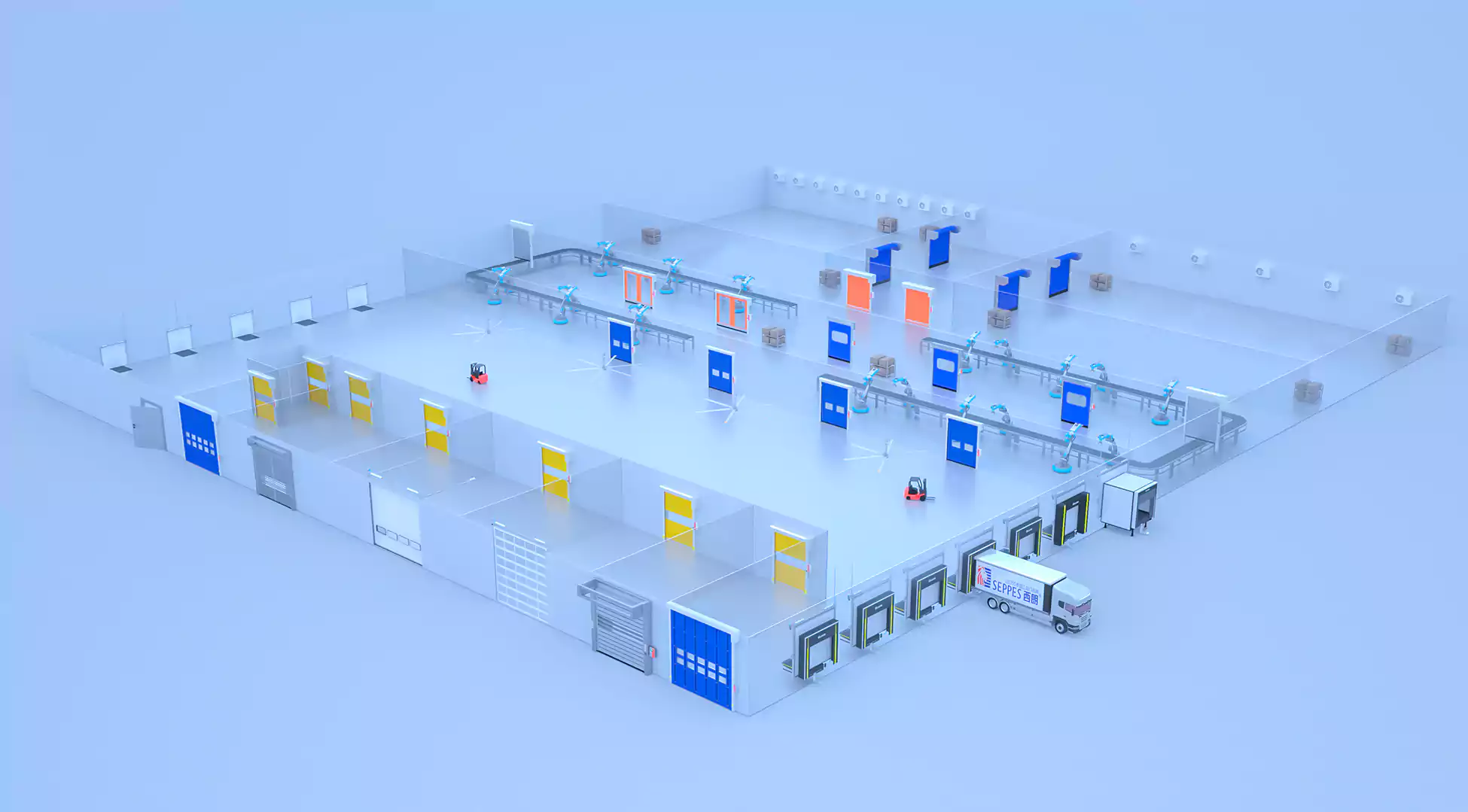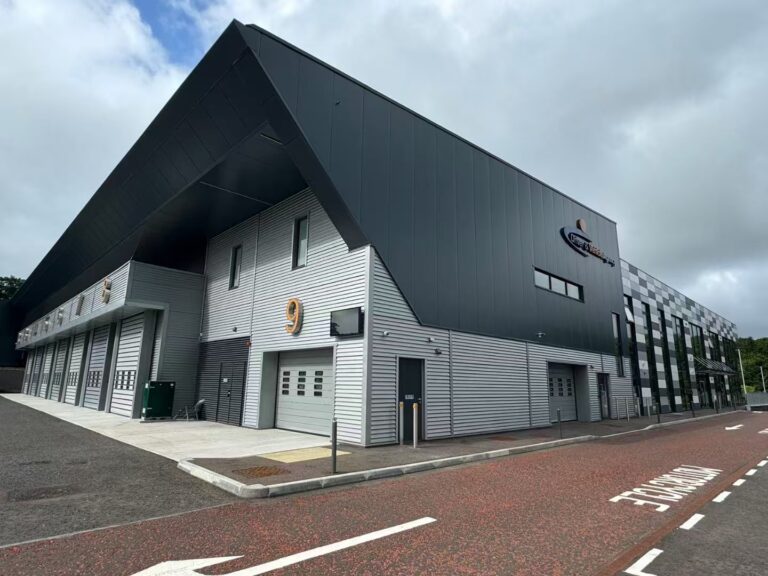In any modern industrial and commercial environment, the door body is not only a gateway for entry and exit, it is a key factor in increasing productivity, ensuring safety and reducing operating costs. Industrial plant doors are a vital part of this and play a vital role in many industrial facilities. Whether it’s a warehouse, production plant or logistics center, the design and function of industrial Factory doors directly impacts the smoothness and safety of the production process and the efficiency of energy use.
As the industry’s demands for efficiency, safety and energy savings continue to rise, more and more companies are choosing industrial plant doors that fit their needs to cope with different production environments, workloads and temperature control requirements. In this article, we will provide you with an in-depth analysis of the types, advantages, application scenarios and selection points of industrial plant doors to help you choose the most appropriate door solutions for your business, so as to improve work efficiency, reduce energy consumption and enhance overall safety.
What are industrial factory doors?
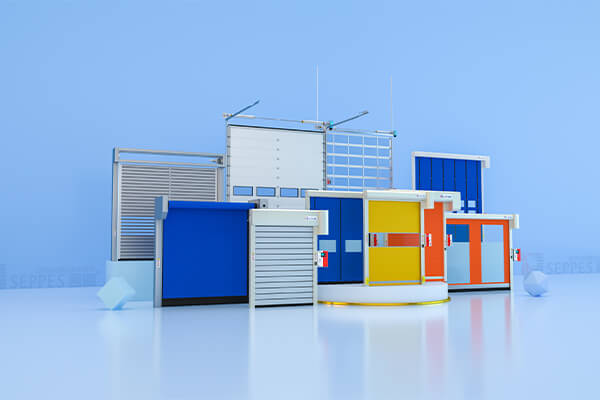
Industrial plant doors are a key component in any industrial or commercial facility, responsible for protecting assets, ensuring safety, and increasing efficiency. As modern production processes continue to advance, so do the demands placed on industrial plant doors. Not only do they need to meet the demands of high frequency opening and closing and strong security, they also need to be better insulated, energy efficient and able to adapt to harsh environments than traditional door bodies.
Advantages of industrial factory doors
Provide security and protection
Industrial plant doors are made from strong and durable materials such as steel, aluminum or composite materials that can effectively protect valuable equipment, inventory items and staff. Many industrial doors are equipped with advanced locking systems to ensure that only authorized personnel have access.
Increased efficiency and productivity
Modern industrial plant doors are designed to open and close quickly, reducing opening and closing times and avoiding stalling of personnel and vehicles, improving the continuity and efficiency of production processes, especially important in busy production lines and logistics centers.
Energy saving effect
Industrial plant doors, especially insulated doors, offer significant advantages in maintaining a stable indoor temperature. By reducing the exchange of hot and cold air, the doors help to maintain a constant indoor temperature, thus reducing the burden on air conditioning and heating systems and lowering energy consumption and costs for businesses.
Types of industrial plant doors
According to different needs and application environments, industrial plant doors are divided into various types, each of which has its unique advantages and applicable scenarios:
Sectional Door

Characteristics: Composed of multiple panels, the door body slides upwards and folds down, suitable for environments with limited space. Provide good thermal insulation and security features, commonly used in warehouses or factories that require large openings.
Application Scenario:
Warehouse: Ensure security and improve access efficiency.
Production workshop: to ensure the temperature control of the workshop environment and provide safety protection.
Roller shutter door
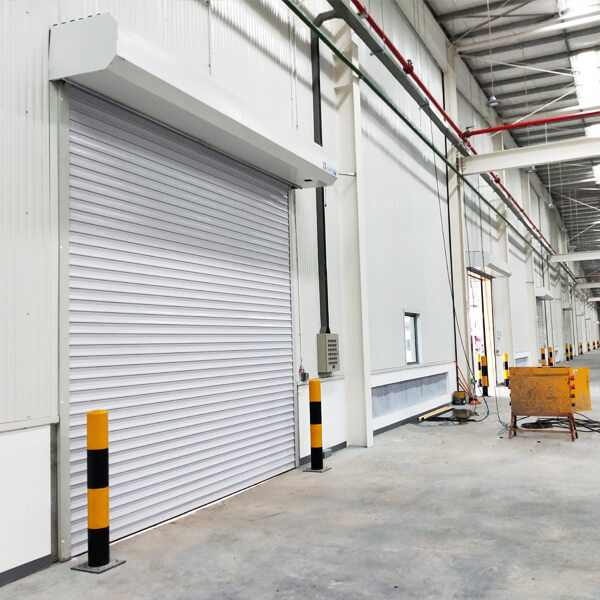
Characteristics: Made of metal sheets, which are wound in a roll, easy to open and close, suitable for environments with high security needs.
Application scenarios:
Loading and unloading terminals: Ensure fast loading and unloading and secure cargo.
Service entrances: Provide additional security.
High-speed doors
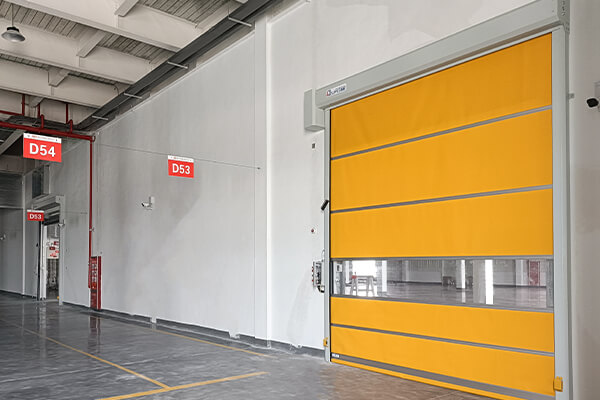
Characteristics: Fast opening and closing speed, usually used in high-traffic production lines, workshops or warehouses, can effectively reduce the energy loss when the door is opened.
Application Scenario:
Food processing plants: Maintain a clean environment and improve production efficiency.
Clean room: fast opening and closing to reduce the possibility of contamination.
Fireproof door
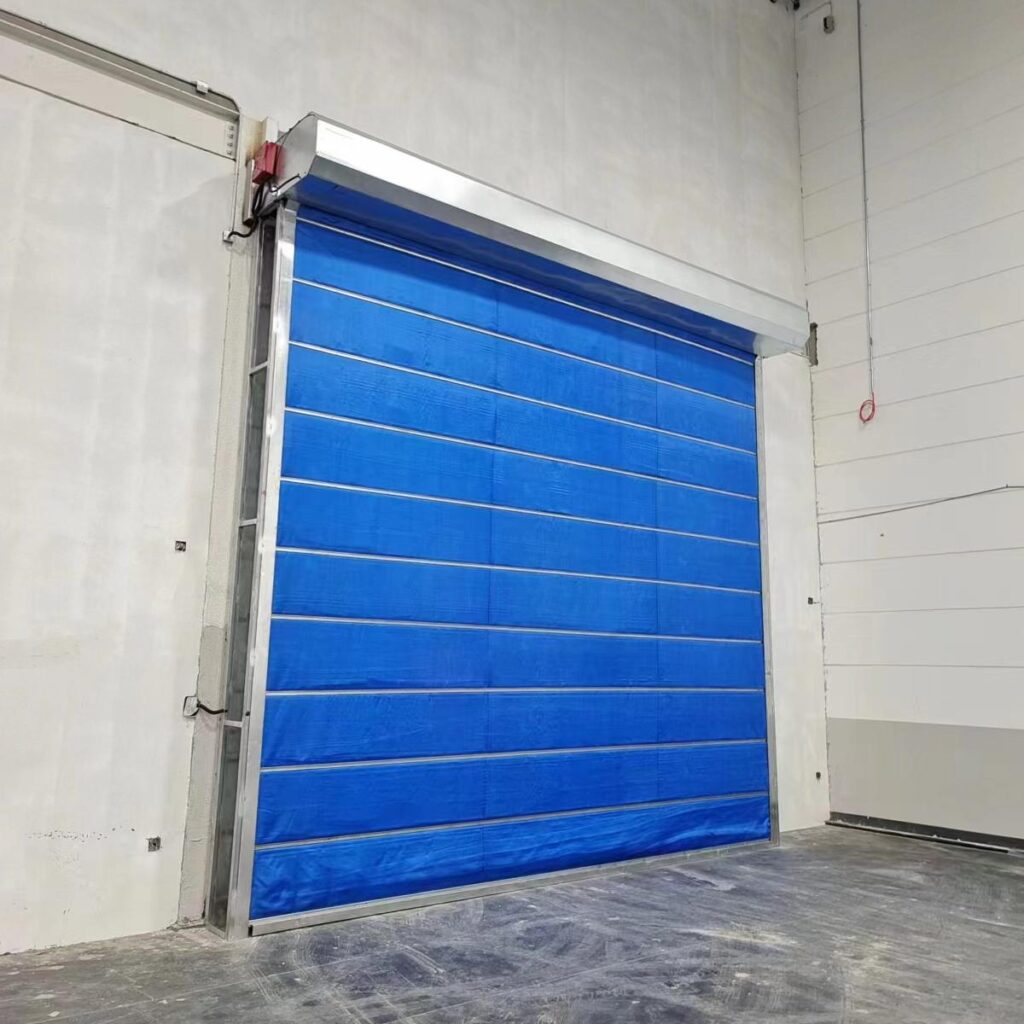
Features: Adopting fireproof material, it can effectively stop the spread of fire and safeguard the safety of personnel and assets.
Application Scenario:
Chemical plants: Prevent the spread of fire and protect plant facilities.
Data centers: Provide additional protection for important equipment and data.
How to choose the right industrial plant door
There are several factors you need to consider when choosing the right industrial plant door:
Determine the needs
First, define the functional needs of the door. Do you need to increase security, maintain temperature control, or improve efficiency? Different needs determine the choice of different types of door bodies.
Security requirements
For locations with high security requirements, it is recommended to choose a door body made of metal or with an advanced locking system, such as a metal roller shutter door or fire door.
Energy saving and temperature control
If your factory or warehouse needs to keep the temperature stable, it is recommended to choose insulated industrial plant doors. These door bodies are highly insulated and can effectively reduce energy consumption.
Installation and Maintenance
Ensure that the door body you choose is suitable for your installation environment, and consider the maintenance costs in long-term use. Regular maintenance can extend the service life of the door body and reduce repair costs.
Installation and maintenance of industrial plant doors
Professional Installation
Correct installation is key to ensuring the performance and safety of the door body. It is recommended to choose an experienced and professional installation team to ensure the door body meets all functional requirements and safety standards.
Regular Maintenance
Regular inspection and maintenance of industrial plant doors can effectively extend the service life of the door body and reduce repair costs. Common maintenance items include:
Checking motorized systems and sensors
Cleaning tracks and door bodies
Lubricating mechanical parts to prevent wear and tear
Upgrade options
As technology evolves, more and more industrial plant doors offer automation options. Automated doors are equipped with sensors that automatically open and close without human intervention, improving convenience and safety.
Conclusion: why invest in industrial plant doors?
Industrial plant doors show great benefits in terms of increased efficiency, energy savings and enhanced safety. By choosing the door body that best suits your needs, you can not only optimize the operation of your facility, but also ensure the safe, stable and efficient operation of your production environment.
Whether it’s a high-speed door, a fire door or an insulated door, there’s an industrial door solution to suit your needs. Understanding the features and benefits of different door types will help you make a more informed choice.
Frequently Asked Questions
How do industrial plant doors improve security?
Industrial plant doors improve impact resistance and burglary prevention through the use of sturdy materials and advanced locking systems. For example, metal rolling doors made of steel plates or aluminum alloy can effectively prevent unauthorized personnel from entering and protect the security of warehouses and production plants.
Which type of industrial factory door is most suitable for high-frequency use?
For high-frequency use environments, high-speed doors are the best choice. They are designed to open and close quickly, reducing waiting times, and are particularly suitable for food processing plants, workshops and other places where doors need to be opened and closed frequently.
How can I reduce maintenance costs for industrial plant doors?
The key to reducing maintenance costs is regular upkeep. Regularly cleaning the door body track, checking the electric system, lubricating the mechanical parts, etc. can reduce the occurrence of malfunctions and extend the service life of the door body. In addition, choosing high-quality door body materials can also effectively reduce long-term maintenance costs.
How long is the service life of industrial building doors?
The service life of industrial plant doors depends on the material of the door body, the frequency of use and maintenance. Generally speaking, better quality industrial doors can last up to 10-15 years under normal use. Regular inspection and maintenance will help to extend the service life.
What industries are fire doors suitable for?
Fire rated industrial plant doors are suitable for any industry where there is a risk of fire, especially in chemical plants, oil and gas storage, data centers, and other environments that require fireproof partitions.

